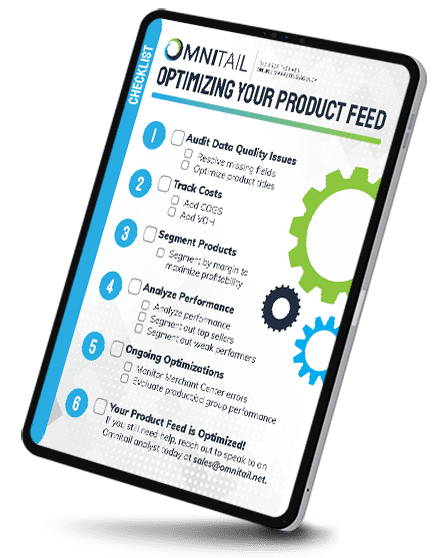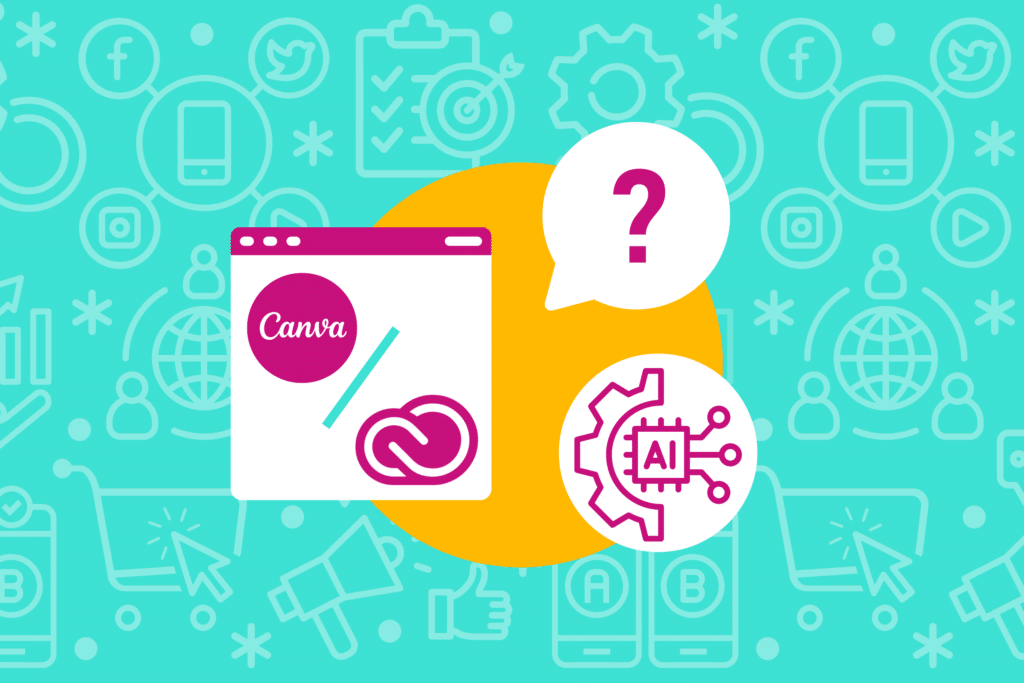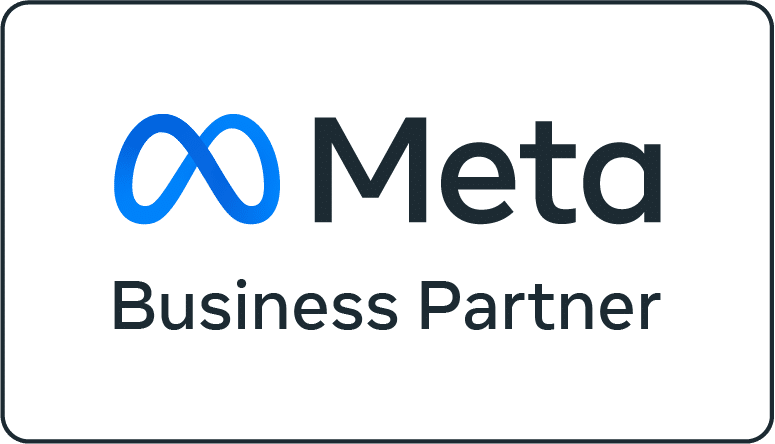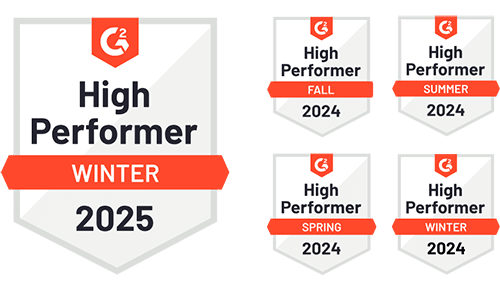Online business owners use a variety of methods to get shoppers to notice their products and services. The debate on whether search engine optimization (SEO) or pay-per-click (PPC) is better for eCommerce brands has been going on for years. In this blog post, we’ll discuss these two search marketing strategies, their best practices, and how you can utilize both SEO and PPC to maximize conversion value for your brand.
The Main Differences Between SEO and PPC
While both SEO and PPC fall under the digital marketing umbrella and have the same goal of driving brand awareness and website traffic, they are (in fact) different.
PPC is exactly what it sounds like—a sponsored search result that appears in a strategic placement on the search engine results page (SERP). Designated with a “Sponsored” or “Ad” label, these paid placements are shown based on a person’s search query and location. Depending on the campaign’s bidding strategy, the advertiser pays a fee each time the ad is clicked.
SEO is a marketing strategy used to increase brand awareness and traffic to a website using organic (aka “free”) tactics. This is done by improving your website’s visibility on SERPs through technical and content SEO strategies:
- Technical SEO includes making updates to a webpage’s front-end code and using search engine tools (like Google Search Console)
- Content SEO refers to consistently (and frequently) publishing fresh, relevant content created around specific topics that will strategically drive the right traffic for your brand
Before we get into how each plays a role in digital marketing, here are a few of the main differences between SEO and PPC.
- The lifespan of PPC is shorter than SEO. In digital marketing, we frequently refer to PPC as “instant gratification” and SEO as a “long game.” Because advertisers spend money on placements, PPC provides immediate visibility to these results; as soon as budget runs out, or the advertiser turns off an asset, the PPC result no longer shows up. SEO, however, is all about “free” reach, which is built over time and thus correlates to a longer lifespan. Organic search doesn’t utilize paid placements for search result visibility, so significant results are achieved over a longer period of time after content has been indexed by the search engine and properly optimized by the brand.
- Keyword targeting differs between the two. With PPC, advertisers bid on keywords to compete for ad placements and share of inventory. Keywords are strategized based on the ad’s landing page and intent, but advertisers look to other criteria such as search intent, quality score, search volume, and cost-per-click (CPC) to determine exactly which keywords to bid on within a given campaign. Keywords targeted for SEO are strategically selected based on criteria such as current ranking, search volume, difficulty, and relevance to the brand; these targeted keywords are then used to drive the topics around which content is produced and/or optimized for better performance.
- Their ranking credibility varies. With PPC, many users are aware that the advertisers spend money to have their website placed in the search engine’s most strategic locations, so credibility can vary based on existing brand awareness. When you achieve high page ranking with SEO, your website gains clout because Google (or other search engines) tell the person searching that your brand’s content is relevant and more credible than others.
- Adaptability is approached differently. PPC gives advertisers a lot of control to adjust their budgets, targeting, and copy nearly in real-time. Search results from SEO take more time and effort to maintain their rankings because it is a process that requires consistency.
Maximize Conversion Value with SEO and PPC Best Practices
Choosing whether to use SEO and/or PPC is largely dependent on factors like business goals, budget, brand awareness, and the nature of the product or service that’s being promoted. While many eCommerce businesses incorporate both strategies to take a comprehensive and balanced approach to online visibility, SEO and PPC don’t necessarily have to be used in tandem for either or both to perform well. We’ll discuss the unique strengths both SEO and PPC bring to the table below.
Some best practices you should implement for PPC include:
- Research paid keywords: Identify relevant terms and phrases your target audience will likely use in PPC queries. Use this data to build contextually relevant ad groups and ads that will drive the right traffic.
- Use geotargeting: Maximize your budget by only showing ads to shoppers in specific locations.
- Set realistic, goal-based budgets: Ensure efficient spending by regularly managing, monitoring, and adjusting budgets.
- Implement conversion tracking: Use conversation tracking to measure the success of your campaigns and understand which keywords and ads are driving value to your website.
- Run A/B tests: Regularly conduct A/B tests on ad variations to help identify what connects with your audience. Test things like headlines, descriptions, and calls-to-action to get better results.
Here are some best on-page SEO practices to follow:
- Research organic keywords: Identify relevant keywords that align with your organic content and target audience. Use keyword research tools like SEMRush or Ahrefs to do this efficiently.
- Optimize meta title tags: Catch the reader’s (and search engine’s) attention by crafting unique, descriptive title tags for each webpage, ensuring your target keyword is near the beginning.
- Write unique meta descriptions: Include informative and engaging meta descriptions (with a keyword woven in) that offer a concise summary of the page’s content. Remember: Each webpage must have a unique meta description.
- Create content hierarchy with header tags: Use header tags (H1, H2, H3) to create structure for your content. Be sure to include target keywords when relevant.
- Establish a simple URL structure: Create descriptive URLs that aren’t extremely long and full of irrelevant characters. Clear and relevant URLs enhance understanding and allow for improved visibility.
- Use descriptive file names for image optimization: Give your images a boost by using detailed file names and adding alt text to optimize them. This not only refines the visual experience, but helps search engines to understand the content.
Once you understand the basics of both search strategies, you can begin to maximize conversion value for your brand. For more advanced assistance, reach out to our eCommerce agency for more information.
The Omnitail Difference
We help customers learn how to measure their success through profitability instead of vanity metrics like ROAS. Doing this provides greater accountability, integrity, and transparency around the health of your eCommerce business.
Our team of SEM analysts combine expertise with our proprietary in-house technology to successfully (and efficiently) manage your campaigns and optimize search ads. As a dedicated eCommerce agency, we take the time to analyze the whole story of your accounts and improve programs based on what’s best for you and your bottom line.
Elevate Your Online Presence with an eCommerce Agency
Ready to elevate your PPC performance? Discover the power of digital marketing to maximize conversion value with a customized strategy tailored to your business goals. Reach out to our eCommerce agency today and schedule a strategy call to see how measuring profitability can drive your business to new heights.








